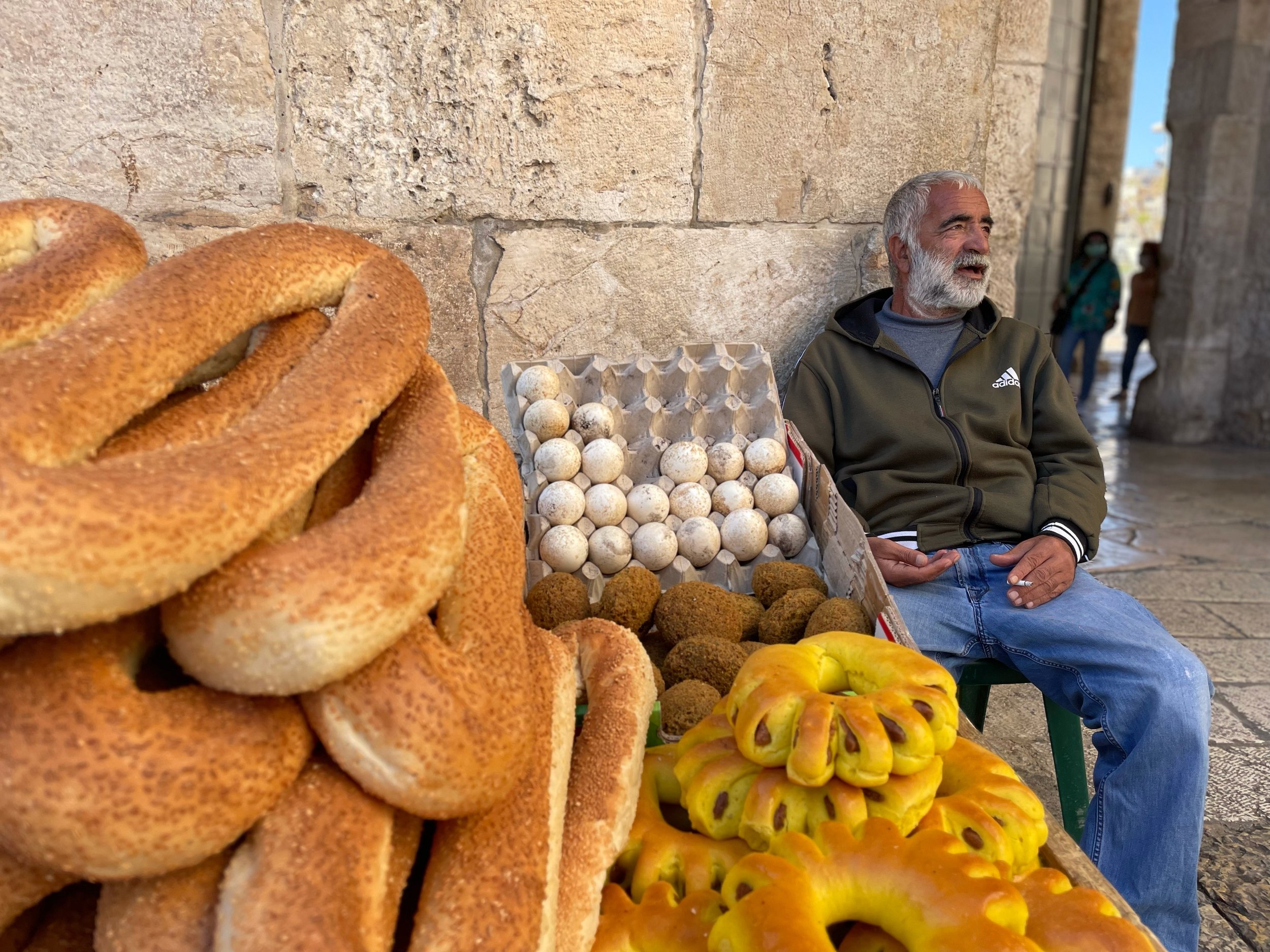Sharing Bread - Jerusalem, IS
Blending in isn’t easy here for me, a blonde-haired, blue-eyed, American woman who noticeably stands out to the shopkeepers in the Old City of Jerusalem. Despite living in the land for two years now, I am often misidentified by vendors as a tourist. But there are those moments, meaningful moments—moments like sharing a cup of fresh mint tea with a shopkeeper or receiving an invitation to a home cooked meal with a local—when the undercurrent of Middle Eastern hospitality sweeps me into feeling a sense of belonging even while abroad in a foreign land.
Zaki’s bread cart is parked in prime real estate. Wide-eyed tourists and locals going about their daily chores pass through Jaffa Gate from early morning to late evening, bustling in and out of the Old City. Zaki’s dark, teardrop eyes have literally seen millions of people pass by, schoolchildren, statesmen, and soldiers alike. Now a well-worn man who has weathered the heat of Jerusalem summers and the winds and rains of its winters, Zaki has stood at his post for over 50 years selling fire-roasted eggs, bread rings filled with date puree, falafel, and sesame seed bagels.
I point to the date ring which resembles a golden bear claw, hungry to learn the language. “How do you say this in Arabic?” Little by little locals have been teaching me words and phrases, kindly and patiently handing me keys to connection. The more we dialogue, the more we relate. The more we relate, the more we belong to each other’s world.
“Ajweh,” Zaki responds. “It is date.”
“And these? Are these chicken eggs?” I ask.
“Yes. Eggs. Already cooked.” They look scuffed, smudged with dirt. In broken English Zaki describes how the eggs were prepared. “Take olive wood. Burn olive wood hot and then,” he motions with his hands as if forming a pile, “eggs. No water.” It is a long and slow process lest the eggs crack under extreme heat.
“How much is the ajweh?” I ask, concerned he might charge me more for looking like a tourist. “Ten shekels,” he replies. I contemplate whether or not I should buy the brioche date ring for a mid-morning snack.
“You look like you live here,” he adds. A simple comment couldn’t have meant more to me. It means connection to the people and the land. It means feeling like I’m beginning to belong. It means strangers morphing into friends.
I tell him I live just up the way at the university on Mount Zion. He knows it well.
“You take it for free,” he says, pointing to the bread ring. “You are a student. I know how it is. One day you’ll be rich. Come back to help me!” Language barriers aside, we share in the universality of laughter for a quick second.
I am not sure why the golden brioche is made with sections that can be pulled off. Maybe it is tradition. Maybe that’s the way it has been for hundreds of years. For me? It’ll forever remind me of Zaki, a visual invitation to share with others. To share like Zaki shared. His date bread. His story. His smile and laughter. All to make me feel fuller. Piece by piece, little by little. Bread. Our lives are meant to be shared with others.
-Shelley Jones

